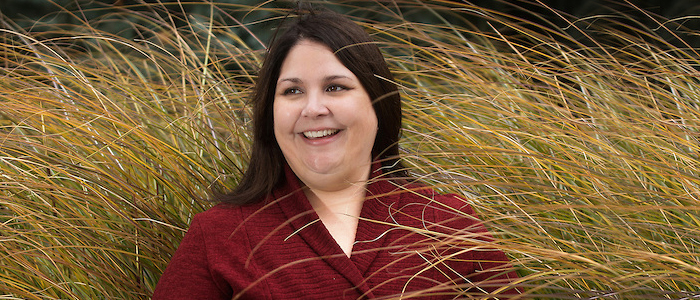By Laurie Arnold, PhD
Waý. Welcome to Gonzaga! Waý is a traditional greeting in the Salish language, and we use it when we say hello and when we say goodbye. Gonzaga sits within the ancestral homelands of the Spokane Tribe of Indians and these lands are part of the Columbia Plateau, which has been home to Native American peoples for thousands of years.
You may have heard that scientists just confirmed that Kennewick Man—we call him the Ancient One—is an ancestor of the Colville Confederated Tribes. The Colville Indian Reservation is located about two hours from Gonzaga and those homelands are also part of the Columbia Plateau. The Ancient One lived on the Plateau about 9500 years ago—that means the space we learn in every day has a long cultural tradition built upon knowledge, humanity, and care for the Earth.
The Columbia Plateau remained an Indigenous space well into the nineteenth century. Traders began to enter the region after 1811, and the Jesuits arrived in the 1840s, but settler immigrants did not begin moving to the region in large numbers until the 1870s and the city of Spokane was not incorporated until 1881.
The Jesuits established missions throughout the Columbia Plateau and in 1881, Father Joseph Cataldo, S.J. bought land to create a college where Native American boys educated at the mission schools could continue their educations. By the time Gonzaga opened in 1887, the first president, Father James Rebmann, S.J., would not admit the Native American boys Father Joseph Joset, S.J. sought to enroll on that first day.
One-hundred-and-twenty-five years later, Gonzaga University created the Native American Studies program. This academic program studies the histories, cultures, and contemporary priorities of Native Americans across the United States, with a special emphasis on tribes and peoples of the Columbia Plateau, our homeland. Gonzaga engages with Plateau tribal leaders and tribal communities through a variety of academic programs and research collaborations. The Native American Studies program is a 21-credit minor open to all students, and I invite each of you to take classes, attend our campus events, and see social justice and intercultural competency in action through your peers’ engagement with Native American Studies. Limlmtx (thank you) for joining our Gonzaga community and good luck this year!
Laurie Arnold, PhD
Enrolled member Sinixt Band, Colville Confederated Tribes
Director of Native American Studies
Assistant Professor of History
